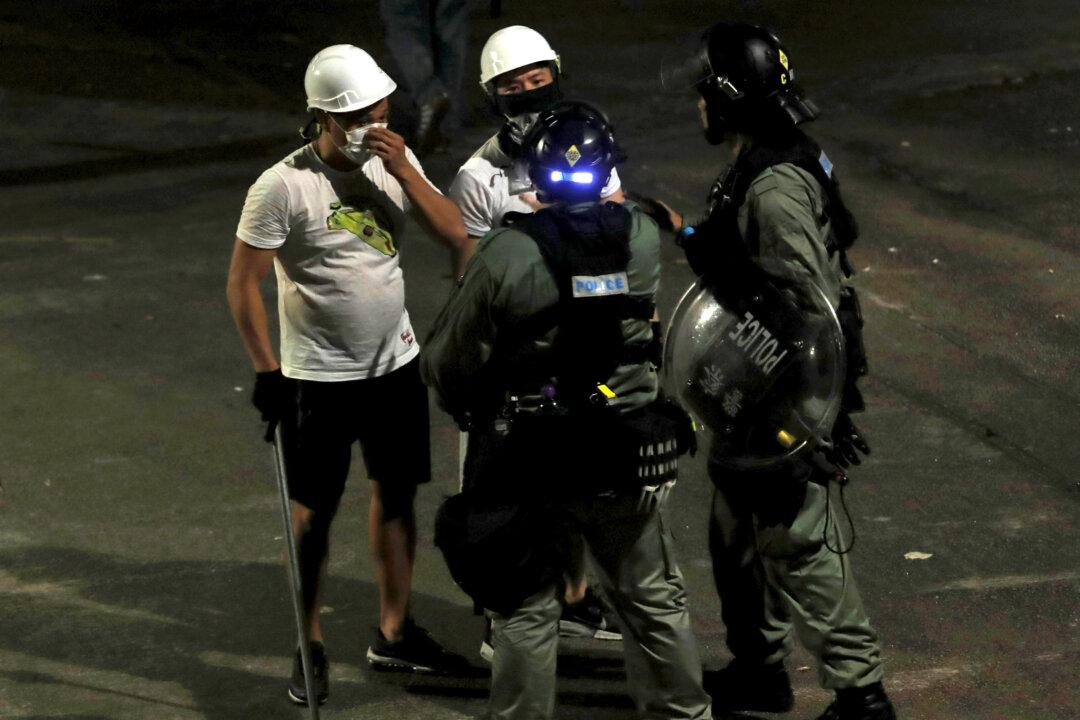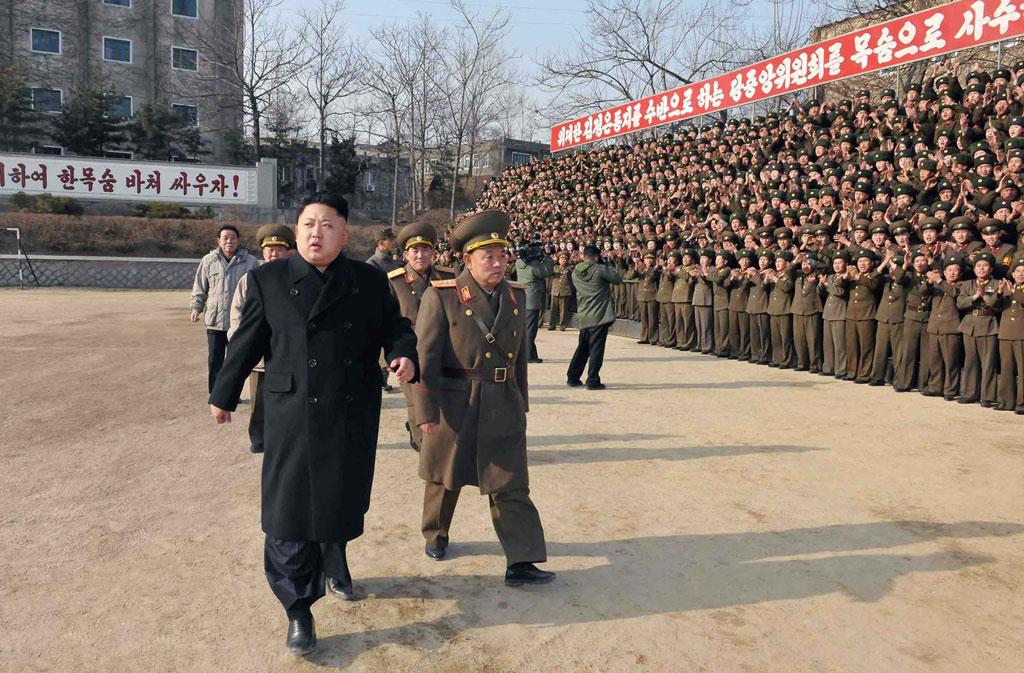News Analysis
The 10-day-long annual event known as the Two Meetings—the convening of China’s rubber-stamp National People’s Congress (NPC) and the advisory body called the Chinese People’s Political Consultative Congress (CPPCC)—has come to an end.
According to many Chinese, the meetings were meaningless and accomplished nothing. But public opinion aside, at least three items decided and commented on during the two meetings—legalized secret detentions, Wen Jiabao’s delivery of yet another (empty) reform speech, and Bo Xilai’s dismissal—point to the fact that the Chinese Communist Party (CCP) is in crisis mode.
In the opinion of many Chinese, expressed on blogs and microblogs, the two meetings are meaningless and don’t accomplish anything.
Yang Hengjun, a blogger and writer said on his Facebook page: “The CPPCC session ended amid high praises. Every year the two sessions are ‘united’ and ’successful.' They have created something of a world record: there has never been a bill that did not pass in its 63-year history. The aim of the two sessions should be to assist the government and prevent it from doing wrong things. But any kind of decision by those in power was approved and enthusiastically recognized by the delegates. What’s the use of having this kind of meeting? Here’s what I think of the two meetings: they are the most successful failure in the world!”
Secret Detention Legalized
One thing the regime accomplished on the last day of National People’s Congress (NPC) was to amend Chinese criminal procedural law to allow Chinese police to detain certain suspects in secret locations for up to six months.
“Similar [secret detentions] already exit, but it’s now been affirmed through this manner, and turned into an open law, rather than just a trend,” Beijing Rights Lawyer Tang Jitian told New Tang Dynasty (NTD) TV.
Click this tag to read The Epoch Times’ collection of articles on the Chinese Regime in Crisis. Intra-CCP politics are a challenge to make sense of, even for veteran China watchers. Here we attempt to provide readers with the necessary context to understand the situation.
Under the new law, police have to inform the suspect’s family within 24 hours, but need not disclose the location or the reason for the detention.
Like every year during the convening of the two meetings, the regime increased control and surveillance of human rights and other social activists all over China.
One activist who went missing is Xu Yongzhi, the director of the Open Constitution Initiative, and an independent candidate for the Beijing Post and Telecommunication University constituency. His office has also been forced to shut down, VOA said on March 13.
Security personnel in Beijing were also detaining many petitioners who had come to Beijing in hopes that officials or media would be more open to hear their grievances during the convening of the two meetings.
Xi Guozheng, a petitioner from Shanghai, told The Epoch Times that on March 8, when he arrived at the Beijing TV station to petition, there were already over 100 petitioners lined up. He said a group of security guards came and dragged all the petitioners onto two big buses parked at the side of the road and took them to Jiujingzhuang into detention.
Jing Yuehua, a female petitioner, said she was taken to Beijing South Railway station to be returned to her hometown. While waiting there, she witnessed three security guards brutally beating a fellow petitioner, 62-year-old Lu Yajuan, who had already been detained for three days.
Lu was merely asking an officer when she would be able to go home. Suddenly, three officers rushed to Lu, and beat her on the head and hand, breaking her arm, according to Jing.
Wang Kouma, another petitioner, said she saw many posters put up by the state in public places during the two meetings that said, “Respect Human Rights.” But when petitioners came to Beijing, they were monitored by stability maintenance personnel.
“It’s even worse now than the ‘one guard every five steps’ regulation in 1949, when the CCP first took over Beijing,” Wang said. “If the CCP doesn’t change the political system, it won’t be able to do anything about the systemic corruption and injustice,” she added.
Wen Jiabao’s Reform Speech
On the same day the secret detention law was amended, Wen Jiabao gave the closing speech at the NPC. Wen said there was a need for political and economic reform, and for improvement in social justice; without it, tragedies similar to the Cultural Revolution could happen again.
It was the same kind of speech he has given many times in the past, and no one seems to take it seriously. But it’s the kind of speech that lands an ordinary Chinese citizen in secret detention or worse.
After the session, talking to journalists, Wen went even further, saying the revolutions in the Middle East should be respected, and “this trend toward democracy cannot be held back by any force!”
Such statements, completely out of step with the regime’s actual policies, are just “empty talk and meant to distract,” Tang Baiqiao, head of the New York-based Democracy Academy of China, told NTD.
“From my own point of view, there is simply one sentence: the Communist regime must go,” Tang said.
Netizen Fang Congming said: “We have given the government 63 years, such a long time, to listen and reflect. Have you seen any fundamental changes? Putting our hope in the leaders to become enlightened, improve, and change into a benevolent government, is like asking a tiger for its skin.”
Continued on the next page: Bo Xilai Scandal
Bo Xilai Scandal
Also on the same day, Wen dropped another bomb when he publicly criticized Bo Xilai, the then head of the Chongqing Communist Party. The next day, Wen announced Bo’s forced retirement.
China analysts have said the recent scandal involving Bo has shaken the regime’s nine-member standing committee.
Bo has made headlines with his Mao-style campaigns that seem to have backfired last month when Wang Lijun, his chief of police and right-hand man, sought refuge at the U.S. Consulate in Chengdu. The Washington Free Beacon has reported that, before being escorted away by Beijing security personnel, Wang left a pile of papers with U.S. officials documenting corruption and other misdeeds committed by top members in the Communist Party.
Responding to a question from a Reuters journalist during the press conference, Wen said, “The current Chongqing City Committee and government needs to self-reflect, and earnestly learn lessons from the Wang Lijun incident.”
Wen’s answer is his customary response when addressing major catastrophes that might reflect badly on the Party: to make a brief politically correct statement, leaving out facts and details.
United, Victorious, and Harmonious
Reflecting on the two meetings, Lawyer Hu Shidong said on a blog: “The two meetings, with a group of directors and thousands of actors, is the biggest show on earth. Of course it is united, victorious, and harmonious.”
Zhi Wuchang on his Weibo: “Whenever media comment on government reports, they always count the times applause was heard during the meeting. Chinese people all know how this applause comes about. I don’t know who are the mentally retarded—the media or the ordinary people.
Life-in-Eden-2 wrote: “There is no opposition party, only one strong ruling party. Who is going to stop their bills from passing?”
Wind-Rain-Picture-Like wrote: “As long as it doesn’t conform to universal values, the only ending for a authoritarian regime is to fall.”
Read the original Chinese articles.



